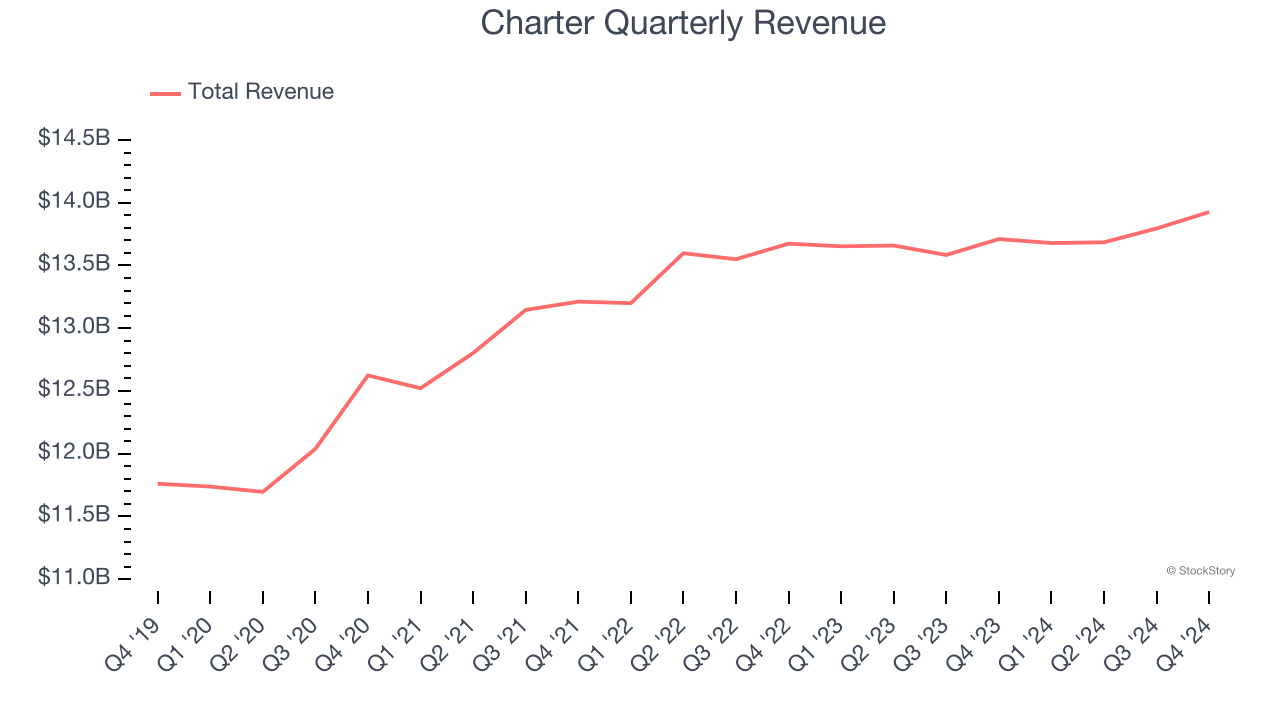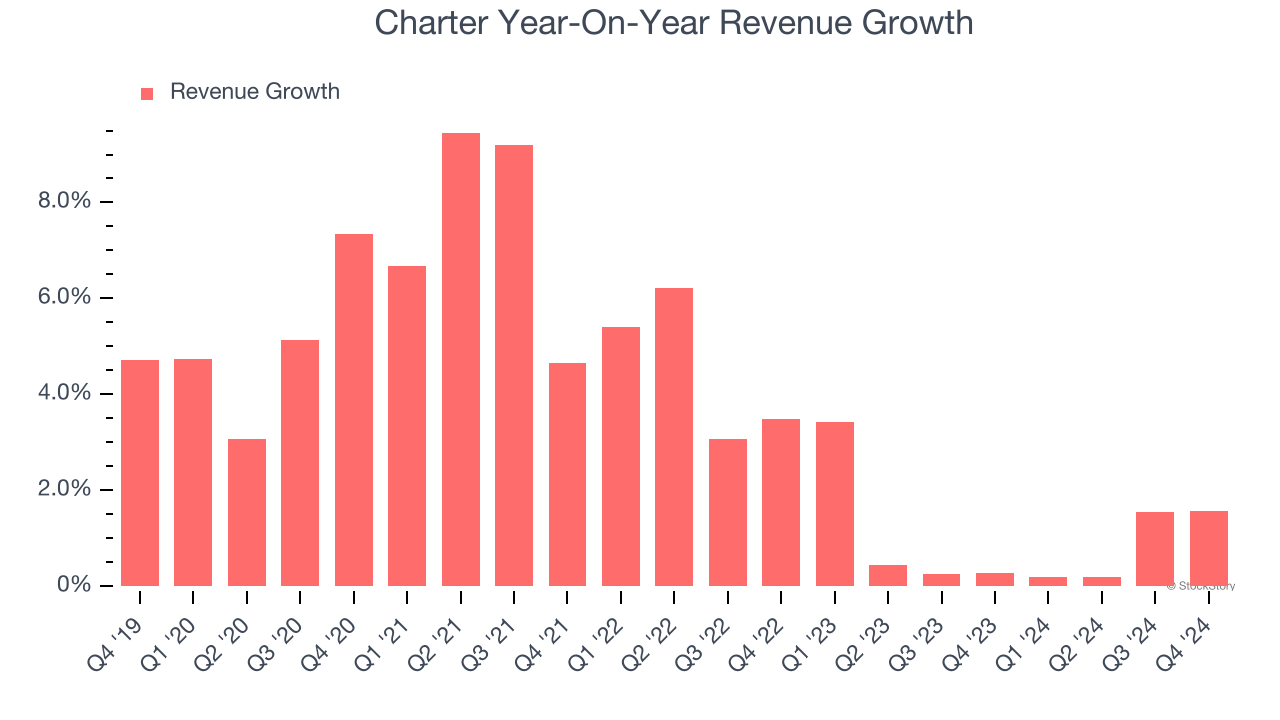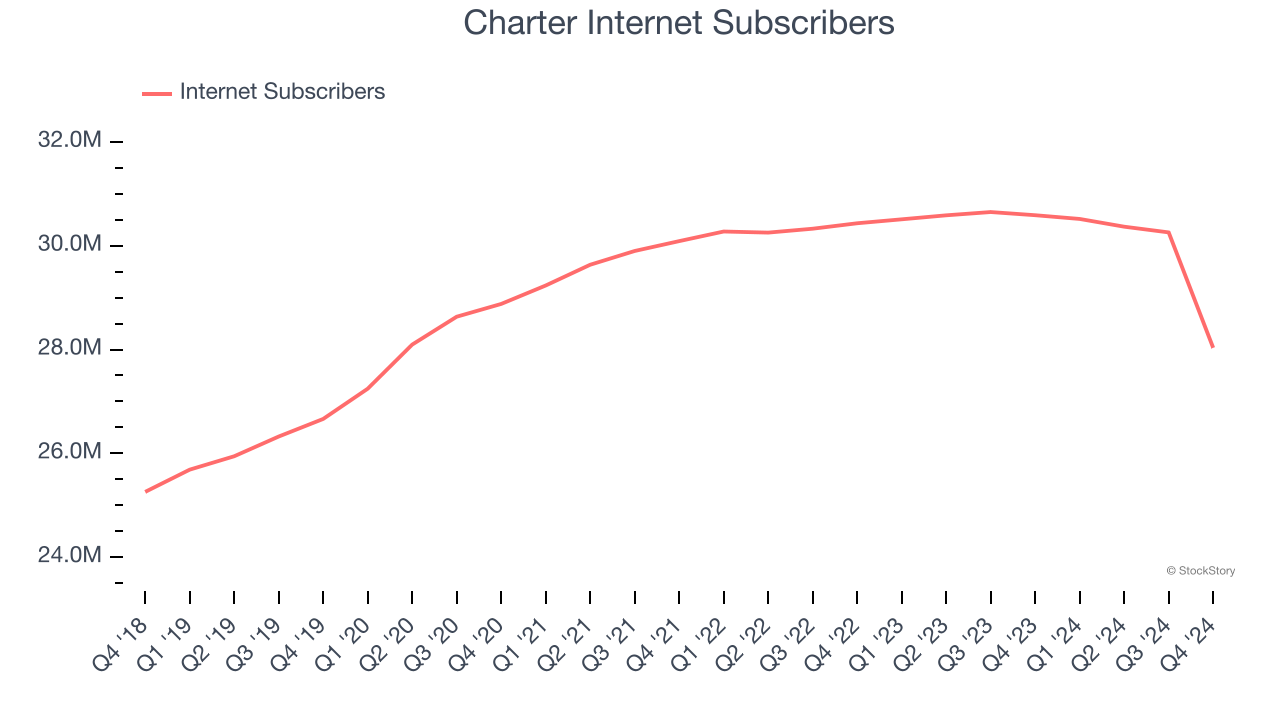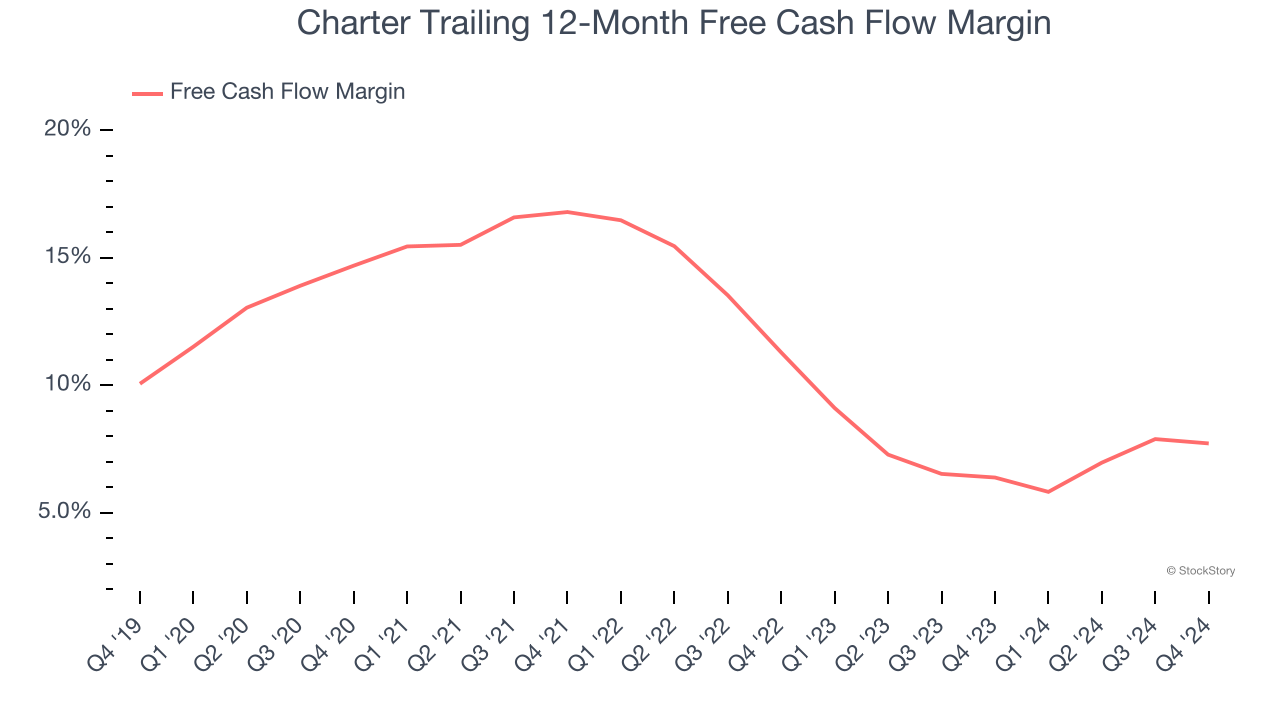
Cable, internet, and telephone services provider Charter (NASDAQ:CHTR) met Wall Street’s revenue expectations in Q4 CY2024, with sales up 1.6% year on year to $13.93 billion. Its GAAP profit of $10.10 per share was 9.5% above analysts’ consensus estimates.
Is now the time to buy Charter? Find out by accessing our full research report, it’s free.
Charter (CHTR) Q4 CY2024 Highlights:
- Revenue: $13.93 billion vs analyst estimates of $13.87 billion (1.6% year-on-year growth, in line)
- EPS (GAAP): $10.10 vs analyst estimates of $9.22 (9.5% beat)
- Adjusted EBITDA: $5.76 billion vs analyst estimates of $5.71 billion (41.4% margin, 0.8% beat)
- Operating Margin: 24.3%, in line with the same quarter last year
- Free Cash Flow Margin: 7.1%, similar to the same quarter last year
- Internet Subscribers: 28.03 million, down 2.55 million year on year
- Market Capitalization: $47.78 billion
"Our multi-year investments in network evolution, expansion and execution are delivering tangible results," said Chris Winfrey, President and CEO of Charter.
Company Overview
Operating as Spectrum, Charter (NASDAQ:CHTR) is a leading telecommunications company offering cable television, high-speed internet, and voice services across the United States.
Wireless, Cable and Satellite
The massive physical footprints of cell phone towers, fiber in the ground, or satellites in space make it challenging for companies in this industry to adjust to shifting consumer habits. Over the last decade-plus, consumers have ‘cut the cord’ to their landlines and traditional cable subscriptions in favor of wireless communications and streaming video. These trends do mean that more households need cell phone plans and high-speed internet. Companies that successfully serve customers can enjoy high retention rates and pricing power since the options for mobile and internet connectivity in any geography are usually limited.
Sales Growth
A company’s long-term sales performance can indicate its overall quality. Any business can put up a good quarter or two, but many enduring ones grow for years. Unfortunately, Charter’s 3.8% annualized revenue growth over the last five years was sluggish. This fell short of our benchmark for the consumer discretionary sector and is a tough starting point for our analysis.

We at StockStory place the most emphasis on long-term growth, but within consumer discretionary, a stretched historical view may miss a company riding a successful new product or trend. Charter’s recent history shows its demand slowed as its revenue was flat over the last two years. 
We can better understand the company’s revenue dynamics by analyzing its number of internet subscribers and video subscribers, which clocked in at 28.03 million and 12.33 million in the latest quarter. Over the last two years, Charter’s internet subscribers were flat while its video subscribers averaged 7.8% year-on-year declines. 
This quarter, Charter grew its revenue by 1.6% year on year, and its $13.93 billion of revenue was in line with Wall Street’s estimates.
Looking ahead, sell-side analysts expect revenue to remain flat over the next 12 months, a slight deceleration versus the last two years. This projection doesn't excite us and suggests its products and services will face some demand challenges.
Today’s young investors won’t have read the timeless lessons in Gorilla Game: Picking Winners In High Technology because it was written more than 20 years ago when Microsoft and Apple were first establishing their supremacy. But if we apply the same principles, then enterprise software stocks leveraging their own generative AI capabilities may well be the Gorillas of the future. So, in that spirit, we are excited to present our Special Free Report on a profitable, fast-growing enterprise software stock that is already riding the automation wave and looking to catch the generative AI next.
Cash Is King
If you’ve followed StockStory for a while, you know we emphasize free cash flow. Why, you ask? We believe that in the end, cash is king, and you can’t use accounting profits to pay the bills.
Charter has shown weak cash profitability over the last two years, giving the company limited opportunities to return capital to shareholders. Its free cash flow margin averaged 7.1%, subpar for a consumer discretionary business. The divergence from its good operating margin stems from its capital-intensive business model, which requires Charter to make large cash investments in working capital and capital expenditures.

Charter’s free cash flow clocked in at $984 million in Q4, equivalent to a 7.1% margin. This cash profitability was in line with the comparable period last year and its two-year average.
Over the next year, analysts’ consensus estimates show they’re expecting Charter’s free cash flow margin of 7.7% for the last 12 months to remain the same.
Key Takeaways from Charter’s Q4 Results
Despite in line revenue, it was encouraging to see Charter beat analysts’ EPS expectations this quarter. On the other hand, its number of internet subscribers missed. Overall, this quarter was mixed, but the market seems to be rewarding the bottom-line beat. The stock traded up 3.4% to $347.98 immediately following the results.
Is Charter an attractive investment opportunity right now? When making that decision, it’s important to consider its valuation, business qualities, as well as what has happened in the latest quarter. We cover that in our actionable full research report which you can read here, it’s free.














